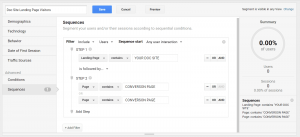— February 12, 2019
Tracking finances is a crucial determinant of the success of any business, regardless of business size.
When done right, finance management can fuel business growth by helping you reduce your expenses and utilize your financial resources for maximum benefits. Poor management, however, can drive your business into losses, legal issues or even worse, business failure.
Most small entrepreneurs make the mistake of managing their businesses the same way they do their personal finances. This is the wrong approach to business since there is more at stake compared to personal finance.
One wrong or unwisely money-related decision could cause you heavy loses or drive your business to the ground. Here are five effective ways to handle your business finances.
1. Educate yourself
Being an expert in your line of business doesn’t automatically make you a money management guru. But you still have to make big finance-related decisions for your business.
You can take the common path that’s characterized by endless googling, half-read articles and very shallow reading materials. However, shallow explanations and a lot of misleading information lying around the internet will lead you down a dark path.
A better alternative is to take an introductory accounting class and learn the basics of how money works in business. A short course at your local college is the ideal solution, but if you are short on free time, an online accounting course will equip you with the necessary accounting skills while offering you a flexible learning timetable.
The firmer your grasp of business finances and cash flow the better your chances of making informed money decisions and avoiding common financial pitfalls that plague small businesses.
2. Separate personal and business finances
Managing personal finances is very easy. There are no deadlines, easily manageable budgets, and there are no serious consequences when you postpone it till never. On the other hand, business finances are much more complex, involve higher risk and have serious consequences when mismanaged.
Mixing these two streams of finances can cause catastrophic complications in the long run. To avoid tax issues, mixed up records and inaccurate accounting, it’s best to separate your personal money from your business. In the long run, doing so will also save you from personal liability.
As a precaution, avoid funding business projects using your personal money and vice versa. It will save you a lot of headaches as your business grows.
3. Use cloud-based accounting software to streamline finance management
Managing business finances shouldn’t be a difficult task, but it often is for many entrepreneurs who insist on using filling cabinets and basic accounting software to manage their finances.
To streamline money management, cloud-based business solutions offer more advanced options and convenience over traditional accounting methods. They offer you real-time insights into your expenses, cash flow, and other money metrics.
Additionally, these advanced accounting solutions allow you to access, manage and update your data from everywhere; making accounting easier, safer and free from errors.
4. Create financial projections to plan for the future
Can you afford to venture into the new market you are trying to penetrate? Or the three new employees you desperately need? Or the new office space you intend to rent?
These are the kind of big money decisions that business owners have to deal with on a daily basis and they cannot be answered without accurate predictions of your cash flow.
To avoid making costly investments that drain your resources, or growing unsustainably, it’s important to create accurate financial predictions for your business. These financial forecasts can tell you how much money you can make and thus help you in deciding how to spend what you have.
Planning for the future prevents you from making forceful sacrifices when you’re running low on funds and can save your business from failure caused by poor financial management.
5. Plan and pay your taxes on time
Business taxes have been rising steadily over the past few years. However, contrary to popular belief, the amount of taxes is very little compared to the amount you can pay in fines if you default on tax payments.
Tax payments are time sensitive and not paying your taxes on time can cause serious problems for your business. Hefty penalties are usually imposed on late taxpayers while waiting for too long to handle your taxes can lead you into expensive lawsuits.
To be on the safe side, ensure your business does not suffer the consequences of overdue taxes. It is crucial to consult a tax expert to help you design a manageable tax payment scheme and to apply for tax deduction whenever possible.
6. Hire professional help
As a business grows, smart entrepreneurs hire help or outsource some tasks to ease their loads and get expert help.
If you are an ambitious business owner with a rapidly growing enterprise, it is wise to consider hiring an expert accountant or bookkeeper to help you manage your business finances. An expert will also get around complex accounting hurdles that you may be struggling with.
If you are not ready to hire a fulltime employee, a freelance accountant is a good option to go. Given that 58 percent of small businesses don’t expect to talk to their accountants face to face in the future.
Optimize your finance management for business growth
All business owners want their businesses to grow, attract more sources of revenue and improve their ROI.
Poor finance management will keep you from reaching these goals. With a resounding 82 percent of all businesses failing due to poor or negative cash flow management, it’s important to improve your financial management game.
Don’t let poor finance decisions drive your business into the ground. Good financial decisions are the key to avoiding losses, improving profits and growing your business.
Business & Finance Articles on Business 2 Community
(73)
Report Post





